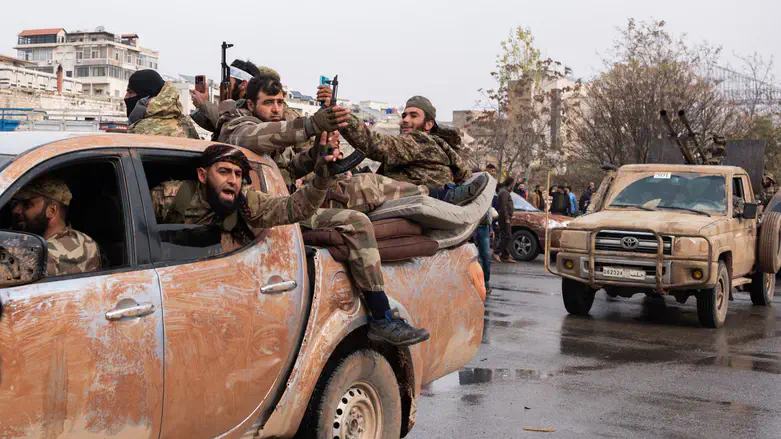
Syrian rebel leader Abu Mohammad al-Julani on Saturday spoke about Israel for the first time since the fall of the Assad regime on Sunday.
"We are not entering into conflict with Israel," he said. "Israel is using the Iranian presence as an excuse to invade Syria. After the Iranians leave, there are no reasons for foreign interference in Syria."
Last week, al-Julani told CNN, "The seeds of the regime’s defeat have always been within it… the Iranians attempted to revive the regime, buying it time, and later the Russians also tried to prop it up. But the truth remains: this regime is dead."
"I think that once this regime falls, the issue will be resolved, and there will no longer be a need for any foreign forces to remain in Syria," he added. "Syria deserves a governing system that is institutional, not one where a single ruler makes arbitrary decisions."
"We are talking about a larger project – we are talking about building Syria."
Earlier this week, the IDF announced that it has struck 320 “strategic targets” in Syria since the fall of the Assad regime over the weekend, in an operation is meant to destroy much of Syria's arsenal to prevent it from falling into the hands of Islamist and terrorist forces.
Over 350 fighter jets took part in the operation, which has been given the name "Bashan Arrow." As much as 70 to 80 percent of the Assad regime's military capabilities have been destroyed.
On Thursday, Israeli Prime Minister Benjamin Netanyahu's office published a statement clarifying the reason for the IDF's presence in Syria and stressing that it is temporary.
"The collapse of the Syrian regime created a vacuum on Israel’s border and in the buffer zone established by the 1974 Separation of Forces Agreement," the statement explained. "Israel will not permit jihadi groups to fill that vacuum and threaten Israeli communities on the Golan Heights with October 7th style attacks."
"That is why Israeli forces entered the buffer zone and took control of strategic sites near Israel’s border."
The statement emphasized, "This deployment is temporary until a force that is committed to the 1974 agreement can be established and security on our border can be guaranteed."

